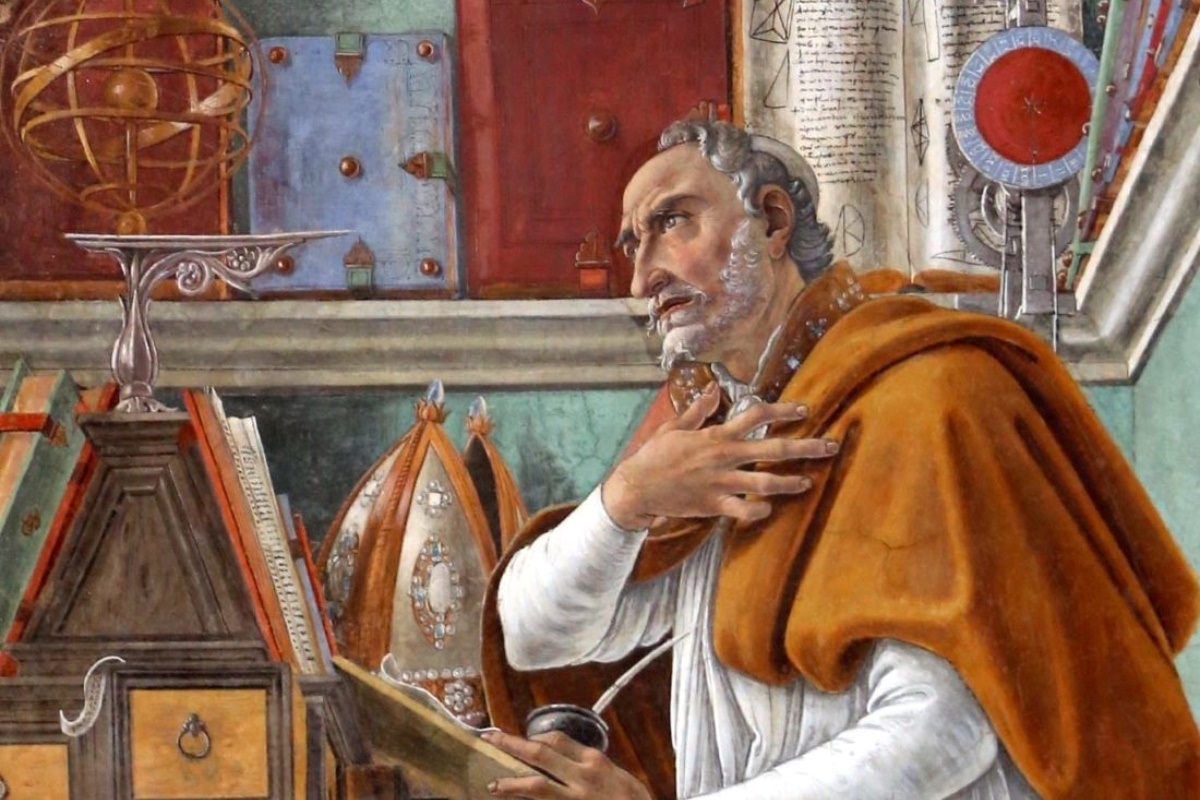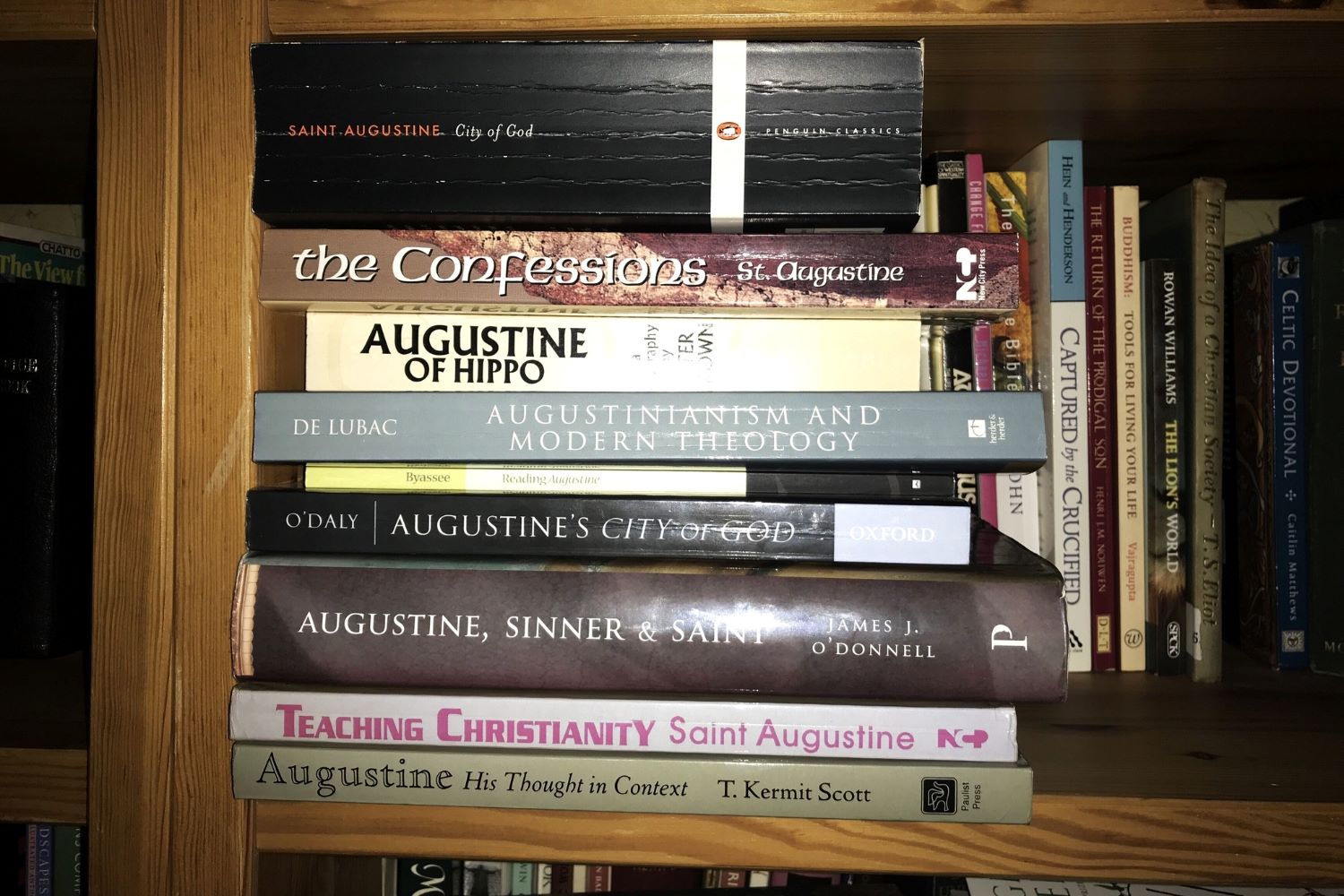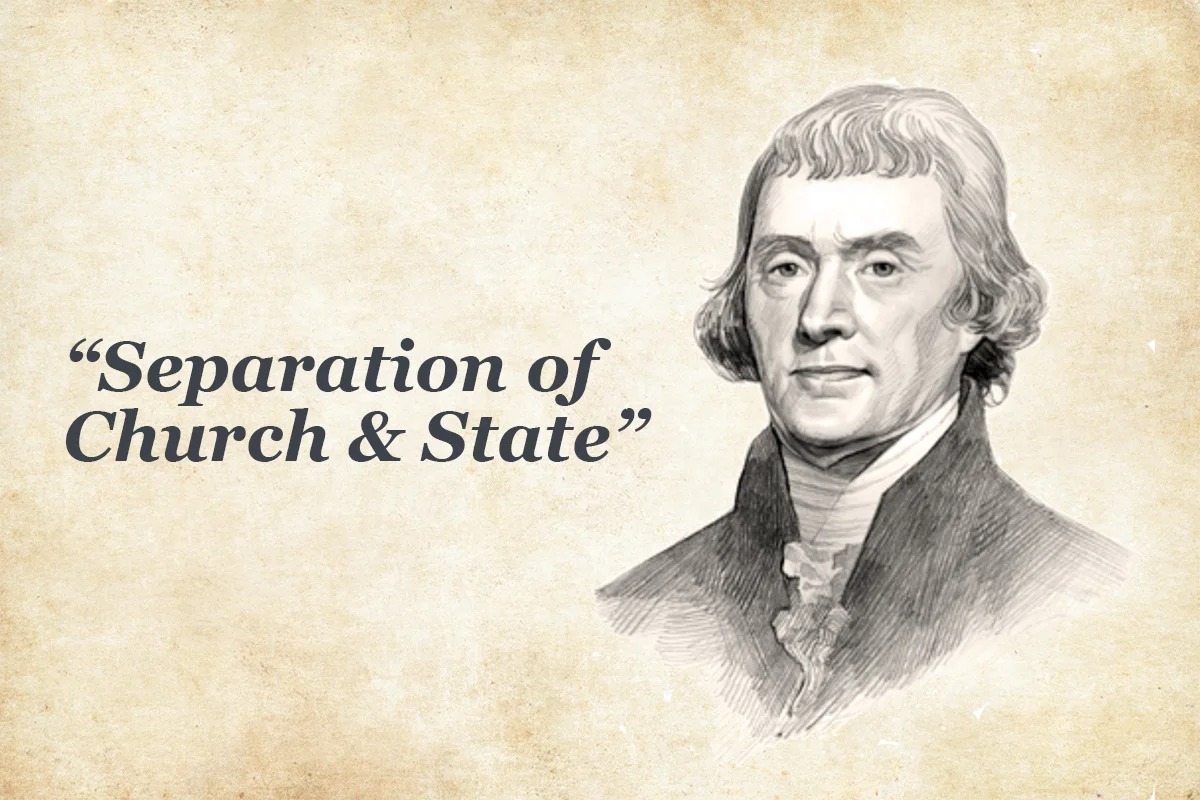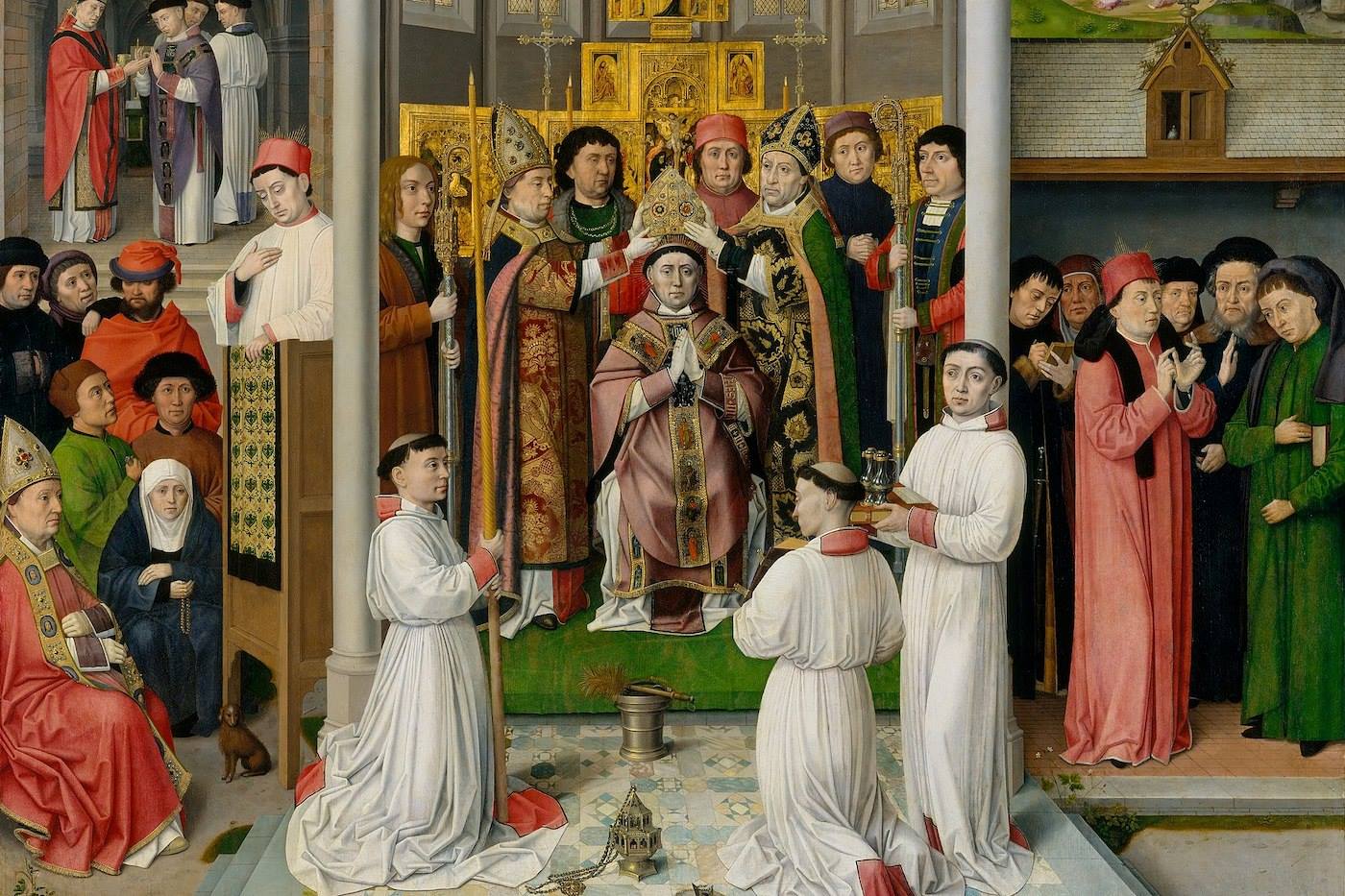Home>Theology and Spirituality>What Did Augustine Say About Reality
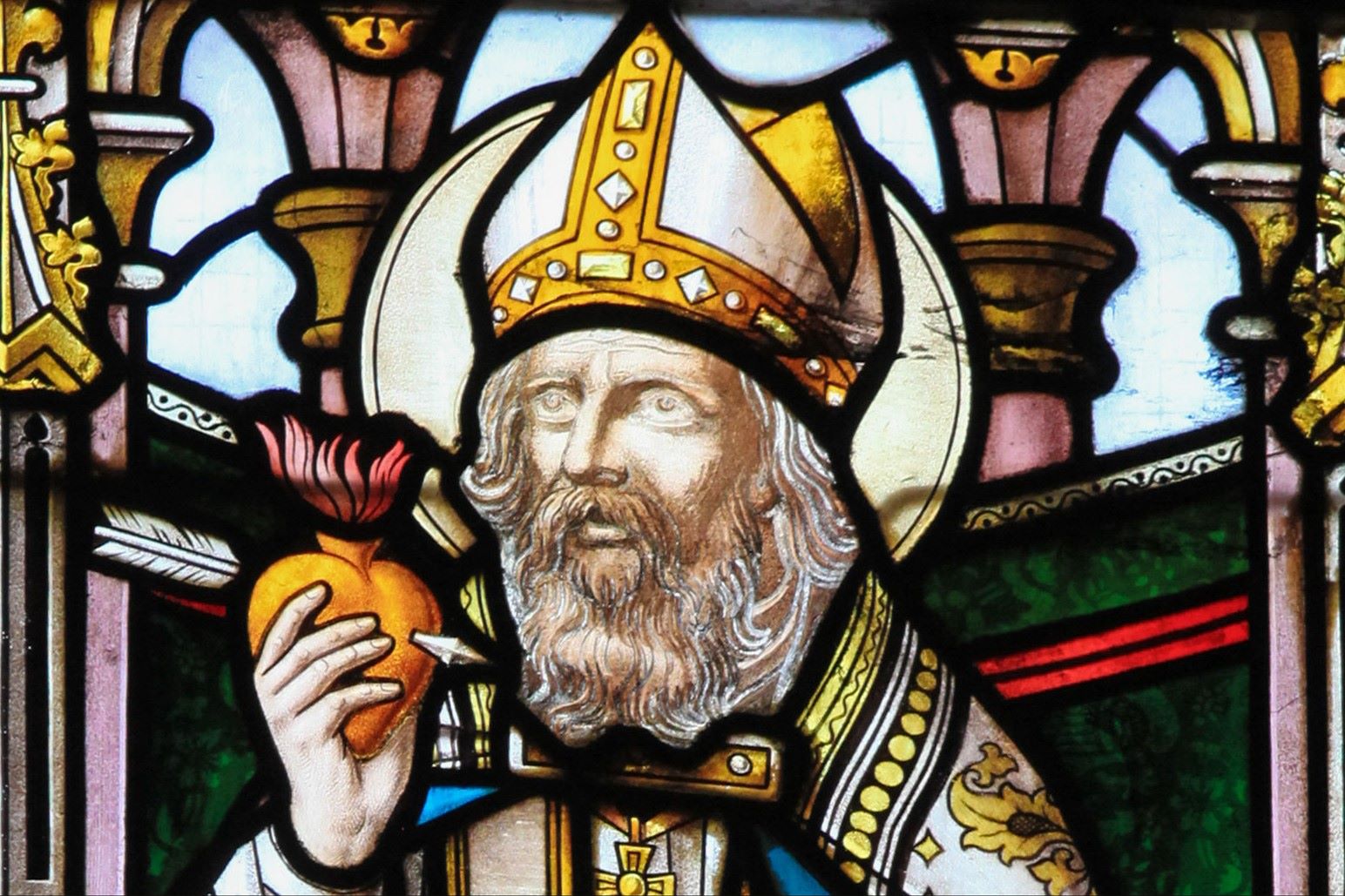

Theology and Spirituality
What Did Augustine Say About Reality
Published: February 10, 2024
Peter Smith, Editorial Director at Christian.net, combines deep insights into faith, politics, and culture to lead content creation that resonates widely. Awarded for his contributions to religious discourse, he previously headed a major organization for religious communicators, enhancing dialogue on faith's societal impacts.
Discover Augustine's profound insights on reality and spirituality in theology. Explore his timeless wisdom and teachings on the nature of existence. Gain a deeper understanding of theology and spirituality through Augustine's perspective.
(Many of the links in this article redirect to a specific reviewed product. Your purchase of these products through affiliate links helps to generate commission for Christian.net, at no extra cost. Learn more)
Table of Contents
Introduction
Augustine of Hippo, also known as Saint Augustine, was a prominent theologian and philosopher whose profound insights continue to shape the understanding of reality and truth. His influential works, such as "Confessions" and "The City of God," delve into the complexities of human existence, the nature of reality, and the pursuit of ultimate truth. Augustine's philosophical musings and theological reflections have left an indelible mark on Western thought, inspiring countless individuals to contemplate the profound questions of existence and the nature of reality.
In this article, we will explore Augustine's perspectives on reality, truth, the material world, and the existence of God. By delving into Augustine's profound insights, we can gain a deeper understanding of the human experience and the fundamental nature of reality as perceived through the lens of this revered theologian and philosopher. Augustine's profound insights continue to resonate with seekers of truth and wisdom, inviting us to contemplate the nature of reality and our place within it.
As we embark on this exploration of Augustine's thoughts, we will unravel the layers of his philosophical and theological contributions, seeking to glean timeless wisdom that remains relevant in contemporary discourse. Through the lens of Augustine's teachings, we will navigate the intricate tapestry of reality, truth, and the divine, inviting readers to ponder the profound implications of Augustine's insights on the nature of existence and the pursuit of ultimate truth.
Read more: What Did Augustine Say About The Trinity
Augustine's View on the Nature of Reality
Augustine's view on the nature of reality is deeply rooted in his theological and philosophical reflections, offering profound insights into the fundamental fabric of existence. Central to Augustine's perspective is the concept of a dualistic reality, wherein the material world coexists with the realm of the spiritual and divine. He grappled with the tension between the visible, tangible world and the transcendent, eternal realm, seeking to reconcile the complexities of human experience with the overarching framework of divine truth.
At the core of Augustine's understanding of reality is the notion of the "City of God" versus the "City of Man," a dichotomy that delineates the temporal, flawed nature of earthly existence from the eternal, perfect realm of God. Augustine contemplates the transient nature of the material world, emphasizing its impermanence and susceptibility to decay. In contrast, he extols the immutable nature of divine truth and the eternal realm, positing that ultimate reality resides in the unchanging essence of God.
Furthermore, Augustine's view on the nature of reality encompasses the profound interplay between the inner landscape of the human soul and the external manifestations of the physical world. He delves into the intricacies of human consciousness, acknowledging the profound impact of perception and cognition on one's understanding of reality. Augustine's introspective exploration of the human psyche underscores the intricate relationship between subjective experience and the objective nature of reality, inviting contemplation on the nature of truth and perception.
In essence, Augustine's view on the nature of reality transcends mere empirical observations, delving into the metaphysical underpinnings of existence. His profound insights continue to inspire contemplation on the interwoven tapestry of the material and spiritual realms, prompting individuals to ponder the profound implications of his dualistic framework. Augustine's enduring legacy lies in his ability to illuminate the complexities of reality, inviting seekers of truth to navigate the enigmatic terrain of existence with a nuanced understanding of the multifaceted nature of reality.
Augustine's Concept of Truth
Augustine's concept of truth permeates his philosophical and theological discourse, offering profound insights into the nature of ultimate reality and divine wisdom. Central to Augustine's understanding of truth is the recognition of an eternal, unchanging source of ultimate truth, namely, God Himself. In his seminal work "Confessions," Augustine embarks on a deeply introspective journey, grappling with the nature of truth and the human quest for enlightenment.
At the heart of Augustine's concept of truth lies the conviction that ultimate truth is not merely a collection of empirical facts or abstract principles, but rather a transcendent, divine reality that transcends human comprehension. Augustine posits that the human pursuit of truth is inherently intertwined with the longing for spiritual fulfillment and the quest for union with the divine. He emphasizes the transformative power of truth, asserting that genuine knowledge of truth leads to profound inner renewal and spiritual enlightenment.
Furthermore, Augustine's concept of truth extends beyond mere intellectual apprehension, encompassing the holistic integration of mind, body, and spirit. He underscores the profound interconnectedness of truth with the human experience, acknowledging that the pursuit of truth necessitates a harmonious alignment of one's inner disposition with the transcendent reality of divine truth. Augustine's profound insights invite contemplation on the transformative power of truth, inspiring individuals to embark on a profound inward journey toward spiritual illumination and enlightenment.
Moreover, Augustine's concept of truth resonates with the enduring quest for existential meaning and purpose, offering a transcendent framework within which the complexities of human existence find profound significance. He elucidates the intrinsic connection between truth and the human longing for fulfillment, positing that genuine knowledge of truth engenders a profound sense of purpose and existential coherence. Augustine's profound reflections on truth continue to inspire seekers of wisdom to embark on a transformative quest for ultimate truth, inviting individuals to delve into the depths of their being in pursuit of divine enlightenment.
In essence, Augustine's concept of truth transcends mere intellectual abstraction, permeating the fabric of human existence with profound existential significance. His enduring legacy lies in his ability to illuminate the transformative power of truth, inviting individuals to embark on a profound inward journey toward spiritual enlightenment and existential fulfillment.
Augustine's Perspective on the Material World
Augustine's perspective on the material world is deeply rooted in his theological and philosophical reflections, offering profound insights into the nature of the physical realm and its relationship to the spiritual and divine. Central to Augustine's perspective is the recognition of the material world as inherently transient and susceptible to decay. He grapples with the impermanence of physical existence, emphasizing the temporal nature of earthly phenomena and the inherent limitations of material pursuits.
At the core of Augustine's perspective on the material world lies the tension between the allure of temporal pleasures and the enduring significance of spiritual fulfillment. He contends that the material world, while possessing temporal beauty and allure, ultimately pales in comparison to the eternal verities of the divine realm. Augustine's introspective exploration of the human condition leads him to underscore the inherent limitations of material pursuits, emphasizing the transient nature of worldly pleasures and the futility of seeking ultimate fulfillment in temporal endeavors.
Furthermore, Augustine's perspective on the material world extends beyond mere contemplation of its transient nature, delving into the profound interplay between the physical realm and the human soul. He acknowledges the intricate relationship between the external manifestations of the material world and the inner disposition of the human spirit, inviting contemplation on the profound implications of this dynamic interplay. Augustine's insights prompt individuals to reflect on the transformative power of spiritual fulfillment in transcending the ephemeral allure of material pursuits, offering a profound framework within which to navigate the complexities of human existence.
Moreover, Augustine's perspective on the material world resonates with the enduring quest for existential meaning and purpose, offering a transcendent framework within which the complexities of human existence find profound significance. He elucidates the intrinsic connection between the material world and the human longing for spiritual fulfillment, positing that genuine fulfillment is found in the harmonious integration of the material and spiritual dimensions of human experience. Augustine's profound reflections on the material world inspire seekers of wisdom to navigate the transient nature of earthly existence with a nuanced understanding of the enduring significance of spiritual fulfillment.
In essence, Augustine's perspective on the material world transcends mere empirical observations, inviting individuals to contemplate the profound implications of the transient nature of physical existence and the enduring significance of spiritual fulfillment. His enduring legacy lies in his ability to illuminate the complexities of the material world, offering profound insights that resonate with seekers of truth and wisdom, inviting contemplation on the interwoven tapestry of the material and spiritual realms.
Augustine's Ideas on the Existence of God
Augustine's ideas on the existence of God are deeply rooted in his theological and philosophical reflections, offering profound insights into the nature of divinity and the human quest for spiritual fulfillment. Central to Augustine's perspective is the recognition of God as the ultimate source of truth, goodness, and transcendence. He grapples with the enigmatic nature of divine existence, seeking to reconcile the complexities of human experience with the overarching framework of divine truth.
At the core of Augustine's ideas on the existence of God lies the recognition of the human longing for spiritual fulfillment and existential coherence. He contends that the existence of God serves as the foundational bedrock upon which the human quest for meaning and purpose finds profound significance. Augustine's introspective exploration of the human condition leads him to underscore the intrinsic connection between the divine and the human spirit, inviting contemplation on the profound implications of this dynamic relationship.
Furthermore, Augustine's ideas on the existence of God extend beyond mere theological abstraction, delving into the profound interplay between the transcendent reality of God and the intricacies of human consciousness. He acknowledges the profound impact of divine presence on the human soul, positing that genuine fulfillment is found in the harmonious union with the divine. Augustine's insights prompt individuals to embark on a transformative quest for spiritual enlightenment, inviting them to delve into the depths of their being in pursuit of divine communion.
Moreover, Augustine's ideas on the existence of God resonate with the enduring quest for existential meaning and purpose, offering a transcendent framework within which the complexities of human existence find profound significance. He elucidates the intrinsic connection between the existence of God and the human longing for spiritual fulfillment, positing that genuine knowledge of God engenders a profound sense of purpose and existential coherence. Augustine's profound reflections on the existence of God inspire seekers of wisdom to navigate the complexities of human existence with a nuanced understanding of the enduring significance of divine communion.
In essence, Augustine's ideas on the existence of God transcend mere theological speculation, permeating the fabric of human existence with profound existential significance. His enduring legacy lies in his ability to illuminate the transformative power of divine communion, inviting individuals to embark on a profound inward journey toward spiritual enlightenment and existential fulfillment.
Read more: What Did Jesus Say About Baptism?
Conclusion
In conclusion, Augustine of Hippo's profound insights into the nature of reality, truth, the material world, and the existence of God continue to resonate with seekers of wisdom and truth across centuries. His dualistic view of reality, which juxtaposes the transient nature of the material world with the eternal realm of the divine, invites contemplation on the profound interplay between the tangible and the transcendent. Augustine's concept of truth, rooted in the recognition of an eternal, unchanging source of ultimate truth, offers a transformative framework within which the human quest for enlightenment finds profound significance. His perspective on the material world, emphasizing the limitations of temporal pursuits and the enduring significance of spiritual fulfillment, prompts individuals to navigate the complexities of human existence with a nuanced understanding of the interplay between the material and spiritual dimensions of reality. Furthermore, Augustine's ideas on the existence of God underscore the intrinsic connection between divine communion and the human longing for spiritual fulfillment, offering a transcendent framework within which the human quest for existential coherence finds profound resonance.
As we reflect on Augustine's enduring legacy, we are invited to embark on a profound inward journey toward spiritual enlightenment and existential fulfillment. His profound insights continue to inspire individuals to contemplate the complexities of reality and the pursuit of ultimate truth, prompting us to navigate the enigmatic terrain of existence with a nuanced understanding of the multifaceted nature of reality. Augustine's enduring legacy lies in his ability to illuminate the transformative power of divine communion, inviting seekers of wisdom to delve into the depths of their being in pursuit of spiritual enlightenment and existential coherence. In essence, Augustine's profound insights transcend mere philosophical and theological discourse, permeating the fabric of human existence with profound existential significance, and inviting individuals to embark on a transformative quest for ultimate truth and spiritual fulfillment.
In embracing Augustine's teachings, we are called to ponder the profound implications of his insights on the nature of existence and the pursuit of ultimate truth. His enduring legacy continues to inspire seekers of wisdom and truth, inviting us to contemplate the nature of reality and our place within it with a profound understanding of the complexities of human experience and the transcendent nature of divine truth.


